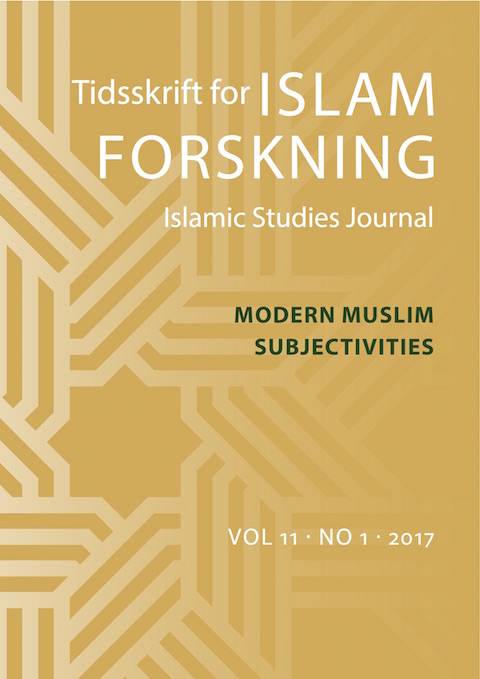Eclectic Sufism in the Contemporary Arab World
DOI:
https://doi.org/10.7146/tifo.v11i1.102873Keywords:
Rumi, Elif Shafak, eclecticism, hybridity, Sufism, localization, sectarianismAbstract
Eclectic Sufism that might be interpreted as a modern form of subjectivity construction has been observed in Morocco and Pakistan. This article reports comparable phenomena elsewhere, using the case of the Arabic translation of Elif Shafak’s novel The Forty Rules of Love. The article argues that, in the wider Arab world as in Morocco and Pakistan, the localization of eclectic Sufism is an instance of the reinterpretation of Islamic traditions to incorporate globally relevant social imaginaries. It questions, however, the association between eclectic Sufism and individualism, and argues that there is also a further form of localization: the application of eclectic Sufism to contemporary political conditions, notably the problem of sectarianism.
Eklektisk sufisme, som kan fortolkes som et udtryk for moderne subjektivitetskonstruktion, kan observeres i Marokko og Pakistan. Denne artikel beskriver og diskuterer fænomener fra andre egne med udgangspunkt i den arabiske oversættelse af Elif Shafaks roman The Forty Rules of Love. Artiklen argumenterer for at den lokalt forankrede eklektiske sufisme, man finder i den arabiske verden såvel som i Marokko og Pakistan, bygger på en genfortolkning af islamiske traditioner, som inkorporerer globalt relevante sociale forestillinger. Samtidig rejses spørgsmål om forbindelsen mellem den eklektiske sufisme og individualismen og muligheden for lokal forankring på et yderligere niveau, nemlig samtidige politiske forhold og problemstillinger knyttet til sekularisme.
Downloads
Published
How to Cite
Issue
Section
License
Scandinavian Journal of Islamic Studies publish under creative commons license BY-NC-SA.





